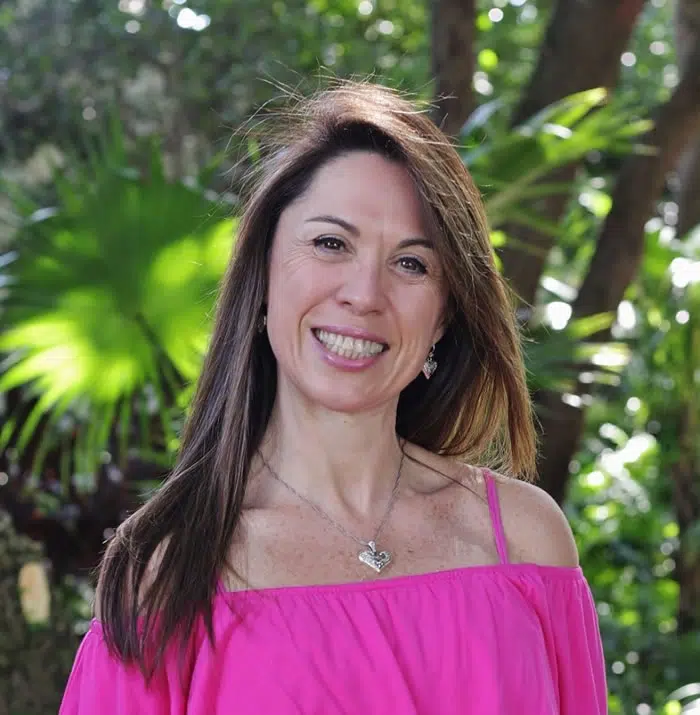By Debbie Setuain
Following in my family’s footsteps
My story began years ago in Spain where my maternal grandparents lived before immigrating to Argentina where my mother and her three sisters were born. My mother married in Argentina and that is where my sister and I were born. It was devastating for my family as my mother and three aunts passed away after they each battled breast cancer. They were all between the ages of 39 – 45 years old when they died. They were so young! My sister was 11 and I was 13 when our mother passed away.
In 1986, I married and immigrated to the United States where I had two beautiful sons. I was hoping to escape the same fate that my mother and my aunts had experienced, but in 2010, I, too, was diagnosed with Triple Negative Breast Cancer. It was the same story all over again. Because of my extensive family history of breast cancer, my oncologist recommended genetic testing which revealed I carry a BRCA1 mutation. My sister also tested positive for a BRCA1 mutation and is a thankful previvor making sure to keep to her aggressive surveillance program.
Communication is critical
My first reaction upon learning that I had a BRCA mutation that caused my breast cancer was one of sadness. Why did I not know about genetic testing? No one ever told me that it existed. Perhaps I could have prevented my cancer diagnosis.
Eventually, I learned about FORCE and received all the necessary training and knowledge I needed to help myself and my family. This provided a level of comfort I had not had in a long time. Unfortunately, in my community, people do not talk about cancer because in the past it was a death sentence. It often feels isolating. I want to change that and now I feel empowered and am able to educate and support others in the Hispanic and other communities.
Statistics for Latinas
Breast cancer is the most common cancer among Latinas, who also tend to be diagnosed at more advanced stages, in many cases due to lower mammography rates and lack of access to health care. In addition, Latinas have the second-highest prevalence of BRCA mutations after Ashkenazi Jews. It is critical that we share hereditary cancer information with this community.
From patient to volunteer - from pain to purpose
Today, I volunteer for FORCE and help newly diagnosed families by giving them information and support. This act of support not only helps others, it has been critical to my own healing. I encourage those who have been diagnosed with cancer or who have a hereditary mutation to learn and to receive support from FORCE. This allows them to make decisions about screening and treatments that are right for them.
My volunteer work with FORCE also makes it easy to stay informed on all of the advances in research that are taking place. This gives me great peace of mind and great hope that my own children - and future generations - will not have to face cancer.
Debbie Setuain, BRCA1 Breast Cancer Survivor
